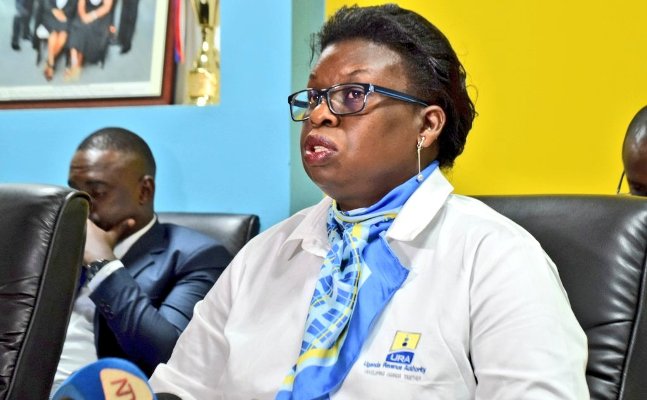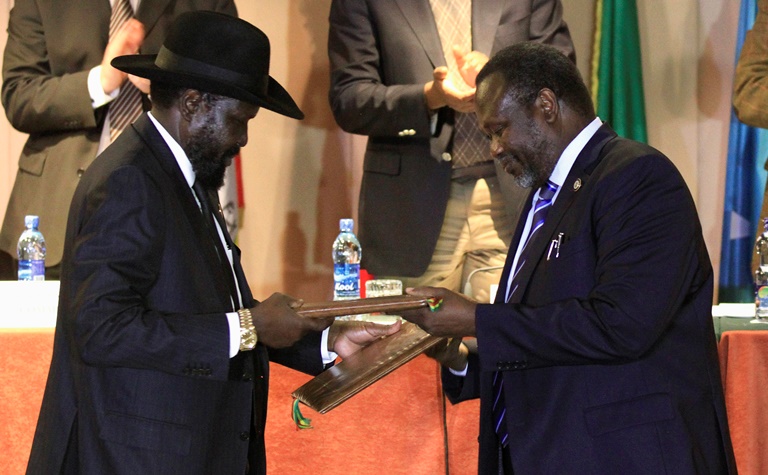Ketty Adoch, a Ugandan innovator in the Agriculture sector has been named among eleven innovators who have been nominated for the Artificial Intelligence (AI) for Earth Innovation Awards.
Adoch (in featured photo), a geographical information systems specialist works towards monitoring change detection for Land Cover Mapping around the areas surrounding the Murchison Falls National Park.
Also on the list of grants is Torsten Bondo, a business development manager and senior remote sensing engineer from Denmark, who applies AI to improve crop water efficiency in Uganda using machine learning.
The Artificial Intelligence (AI) for Earth Innovation Awards are organized by Microsoft and the National Geographic Society (NGS), to provide funds to innovators for research on global environmental challenges in the key focus areas of climate,agriculture, water and biodiversity conservation.
The grants will be awarded to research teams and organizations who are working across five continents to advance scientific exploration and research on critical environmental challenges with the power of Artificial Intelligence. Each recipient will be given access to Microsoft Azure and AI tools and will be included in the National Geographic Explorer community.
Microsoft Corp Chief Environmental Officer Lucas Joppa said, “We believe AI can be a game-changer in our ability to address pressing societal challenges and create a better future. Perhaps nowhere is that potential greater than the continent of Africa, where early adoption of AI tools in areas like agriculture or conservation can yield environmental benefits as well as economic benefits from better management of natural resources and upskilling of the workforce.
In the year since AI for Earth launched, we’ve supported several individuals and organizations in Africa, as well as nearly a dozen organizations that are leading field research across the continent. The interest is there, the technical skills are growing and we are looking forward to many more exceptional ideas from the next generation of African innovators in coming years.”
This partnership with NGS builds on Microsoft’s own US$50 million over 5 yearAI for Earth program, which has awarded more than 180 grants and supports 8 organizations in larger projects since its inception a year ago. This year, both organizations are awarding US$1.2 million in grants with each recipient having earned funds that range between US$45,000 and US$ 200,000.
Jonathan Baillie, the Executive Vice President and Chief Scientist National Geographic Society said, “We’re incredibly excited about the number and quality of projects from Africa using AI to solve environmental challenges as part of our AI for Earth program.
From my early days in the Peace Corps in Malawi to today, I’ve had the opportunity to see and experience the abundance and diversity of biodiversity and natural resources across the continent.
So many of the world’s greatest environmental challenge and largest datasets are available here – from sustainable agriculture to improving species conservation, and from mitigating the impacts of climate change in cities and rural areas to conserving and protecting water. Early adoption and use of AI to solve these problems, here, with young innovators and entrepreneurs, will help every African country grow, adapt and thrive in the future.”
The two organizations believe that the combination of human ingenuity and AI can change the way that society monitors, models and manages Earth’s natural systems.
The eleven 11 AI for Earth Innovation grant recipients are:
Ketty Adoch, Uganda, agriculture: Change Detection for Land Cover Mapping Around the Areas Surrounding the Murchison Falls National Park
Torsten Bondo, Denmark/Uganda, agriculture: AI4Water: Improving Crop Water Efficiency in Uganda Using Machine Learning
Kelly Caylor, US, water: Global Maps of Center Pivot Agriculture to Improve Estimates of Land Use Change and Water Use
Joseph Cook, UK, climate change: AI at the Ends of the Earth
Stephanie Dolrenry, US/Kenya, biodiversity: LINC- an AI assisted Collaborative Database for Lion Identification and Inter-Organizational Research
Gretchen Daily, US, water: Mapping of Small Dams and Reservoirs with Earth Observation and AI
Africa Flores,Guatemala,water: Harmful Algal Bloom Early Warning System
Solomon Hsiang,US/Sweden,climate change: Understanding the Effect of Climate Change on Human Migration in Africa Using 1.6 million Historical Aerial Photographs
Holger Klinck,Germany/Panama,biodiversity: The New Buzz: AI-Powered Acoustic Monitoring of Insect Communities to Advance Conservation of Tropical Rainforests
Justin Kitzes, US, biodiversity: Developing the First Open Source, Scalable Bird Song Classification Software
Heather J. Lynch,US,biodiversity: Coupling AI with Predictive Modeling for Real-Time Tracking of Antarctic Penguin Populations





